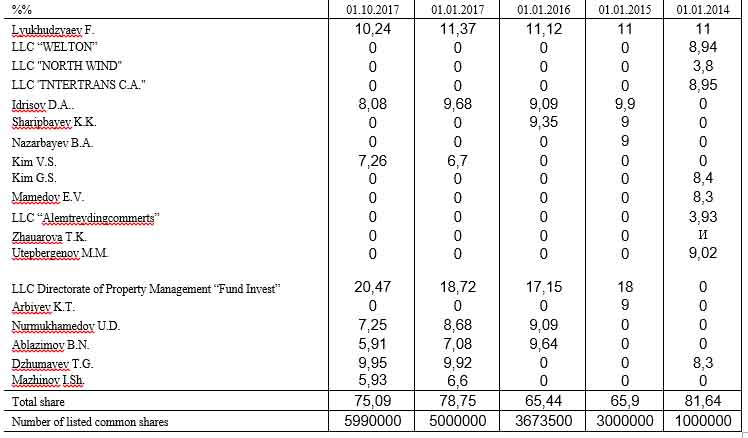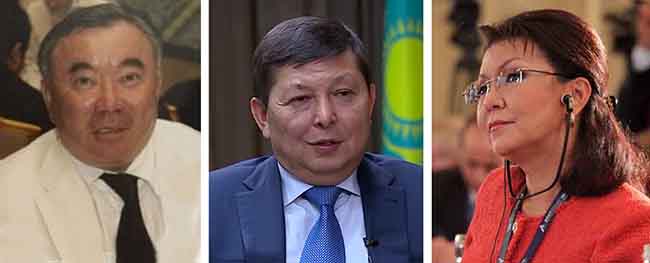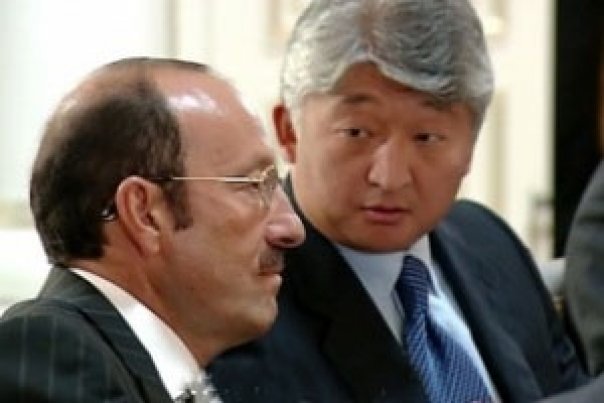The fate of Bank RBK for the next couple of years has been determined – the financial institute will be rescued and continue to work. However, despite the numerous verbal interventions of the Kazakh officials and the detailed explanations given by the National Bank of Kazakhstan and the new Bank RBK management, certain questions remain unanswered.
How did it happen that Bank RBK, a top ten financial institute in Kazakhstan, had de-facto gone bankrupt?
- Who are these shareholders that, in the words of Nursultan Nazarbayev, had robbed the bank?
- Which top-managers had assisted in this process?
- Why did Akorda choose to save the bank and who had influence on the decision-making process?
- Why, during the past months, despite the numerous indications of the bank’s financial insolvency, the NBK had been delaying its response?
- Which persons had been putting pressure on the regulator for the latter not to appoint a bankruptcy administration, to suspend (or even revoke) the bank’s license?
We are certain that these and many other questions will remain unanswered due to the delicate and sensitive nature of this matter for Akorda. Therefore, we will try and reconstruct the behind-the-scenes side of the affairs concerning Bank RBK and associated processes.
According to the Kazakhstan Stock Exchange (KASE) data, the list of those holding significant shares of Bank RBK for the past four years includes these personas.

Since the minority shareholders were in no position to steal Bank RBK funds, some of the aforementioned physical and (or) judicial bodies are among those responsible for the critical financial situation at the bank and the fact that, without the massive state support, it would have instantly gone bankrupt.
By the way, these bodies include some of those rather close to Nursultan Nazarbayev. First, there is the Directorate of Property Management “Fund Invest” controlled by the Fund of the First President of Kazakhstan managed by Dariga Nazarbayeva. Second, there is Kayrat Kamatayevich Sharipbayev, the current husband of the president’s eldest daughter. Third, there is Bolat Abishevich Nazarbayev, the president’s brother.

In the meantime, Akorda, via the Kazakhstan government and the NBK, for some reason, has partially shifted the responsibility for the bank’s critical condition onto Vladimir Sergeevich Kim, a Forbes-Kazakhstan listed billionaire and a co-owner of some major Kazakhstan copper mining companies. The Kazakhmys Corporation controlled by Kim has assumed the obligation to invest 160 bln tenge in Bank RBK rescue operation.

The reasons why such a decision was made (and, undoubtedly, by Nursultan Nazarbayev himself, otherwise, Kim would have disputed it) and why Kim agreed to bear such heavy costs, remain a mystery. And it is unlikely that the state will share this secret with the public and the market unless some information leakage is to occur.
As for the current shareholders of Bank RBK both the majority and the minority ones, the board of directors have offered them to buy back an additional common voting stock issue in the amount of 70 bln tenge.
Therefore, the total volume of Bank RBK financial support will amount to 474 bln tenge of which 160 bln are to be invested by the Kazakhmys Corporation, 70 bln – by the bank’s shareholders, 244 bln – by the NBK.
Is it personally Vladimir Kim who bears responsibility for the bank’s financial situation? We cannot say this with certainty. On the one hand, from November 4, 2014 to September 14, 2017, the bank was chaired by Igor Mazhinov who is said to be Vladimir Kim’s son-in-law. And since the stealing of the monetary funds could not have happened without the bank chairman’s participation, we may assume the older relative has to answer for the younger one.
However, another option is also possible. Up until the fall of 2014, Bank RBK was under the control of the members of the Nazarbayev family who probably actively took out loans and then, when it became a problem, gave this financial institute away to Vladimir Kim who lobbied his son-in-law’s appointment as the chairman. The latter, however, was unable to redeem the situation.
The second scenario is confirmed by the fact that neither Nazarbayev nor the NBK has ever released the names of the shareholders suspected of stealing Bank RBK funds even though it would be quite common for the Kazakhstan practices.
However, the fact that Mazhinov’s predecessor Marpu Zhakubayeva who, after his appointment as the chairman, became his first deputy is now, once again, the person in charge speaks against this scenario.
Judging by Bank RBK shareholders’ personnel decisions, undoubtedly, dictated by Akorda, if they choose to find the scapegoats, Igor Mazhinov or Marpu Zhakubayeva will be on the list.
By the way, observing the mayhem with Bank RBK board members, we have concluded that several clans had been trying to rescue it including that of Mazhilis Speaker Nurlan Nigmatullin. His son Nurkhan Nuranov had even worked there for about two months as the deputy chairman. However, all these “rescuers” did not have the necessary financial resources. Therefore, the matter reached the presidential level at which they made the decision.
Meanwhile, according to our estimates, given the volume of the problem loans amounting to 600 bln tenge that need to be moved to a special financial company, the 434 bln tenge of the allocated state support are clearly not enough. Therefore, we can predict that, just like it was in BTA Bank case, the question what to do with it will be raised once again in a couple of years.
And then, if the monetary funds of Bank RBK went in the direction of Vladimir Kim and the affiliated business-structures, anything will be possible including the bankruptcy of the financial institute, opening a criminal case, and a new many-hundred-billion-dollar portion of the monetary inflow from the investors.
If it turns out that Nursultan Nazarbayev relatives are responsible for Bank RBK problems and Nazarbayev will still be in power, the state will be forced to rescue the financial institute once again. Otherwise, the political damage from its bankruptcy will certainly be much greater than the financial losses from yet another “rescue” operation.
Author: KazakhSTAN 2.0